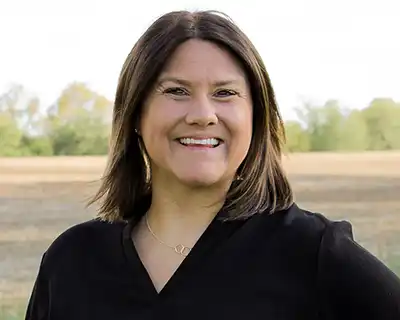Sustainability is woven into the fabric of Valent U.S.A.’s culture, how the agriculture input leader is putting that to work for people, planet and productivity
For Valent U.S.A., the idea of sustainability as a corporate principle is centuries old and woven into the fiber of their culture, passed down from their parent company, Sumitomo Chemical Company, LTD. Sumitomo operates under the philosophy of Jiri-Rita Koushi-Ichinyo, which means that the actions of the business must benefit society at large.
Recently, Valent U.S.A. has made significant strides toward bringing that sustainability culture all the way through to their customers, releasing their latest Sustainability Report and establishing a Sustainable Solutions Criteria, which helps growers evaluate and asses their products’ sustainability metrics to fit operational goals.
America’s Conservation Ag Movement recently talked with Kenny Seebold, Valent U.S.A.’s senior director of field R&D, about how those values are shaping the decisions that the company is making now, and for the future.

Senior Director of Field R&D
Valent U.S.A.
How does Valent U.S.A.’s commitment to sustainability thread throughout the company and extend into the products and services that you provide to growers?
Our sustainability approach is linked to the United Nations’ Sustainable Development Goals (SDGs), which address major problems facing the world such as poverty, food security, energy and the environment. Valent’s emphasis on sustainability drives our research and development efforts, how we innovate, how we train our team members and how we partner with stakeholders and customers to support and promote the adoption of sustainable agricultural practices.
You unveiled the Sustainable Solutions Criteria program earlier this year. What does that look like for growers?
Our Sustainable Solutions Criteria, which are aligned with specific UN SDGs, are grouped under three pillars: people, planet, and productivity. Using strictly defined guidelines, the criteria are science-based and feature eight distinct icons that represent key sustainable practices and attributes. Under “People”, the icons are worker efficiency and reduces food loss. For “Planet”, we have identified environmental fit, conservation tillage and soil health as key sustainability features for our products. For “Productivity”, the sustainability features focus on IPM fit, improvement of crop production efficiency and enhancement of yield quality.

The icons under our Sustainable Solutions Criteria have been assigned as appropriate to our current portfolio, and we also use these to characterize products under development. The icons are incorporated into various digital tools, printed materials and training packages that our field development specialists and sales team can use to educate and assist growers in choosing products that will help them reach higher levels of sustainability in their operations.
In a time when growers need to maximize productivity at all levels, how does Valent’s portfolio allow them to do that, while also maintaining profitability?
Valent’s portfolio has been developed to provide growers with cost-effective and innovative solutions that protect yields, increase quality of the harvested commodity and are IPM friendly. In addition, several of our products were developed with pest, disease and weed resistance in mind to give growers tools to fight these issues. We also invest in developing solutions to deal with invasive and exotic pests, which pose a challenge in many agricultural solutions.
How is Valent using field R&D to measure and monitor the impact of your portfolio on the environment?
Valent constantly monitors advances in the world of sustainability, and we actively incorporate new ideas and technologies into our programs (i.e. carbon sequestration, soil health). Using herbicides as an example, we develop solutions with a fit in conservation tillage. We also invest in invasive species management, resistance management practices, harvest management with our PGR portfolio and ways to maximize productivity with less pesticide.
What are some of the biggest challenges facing growers right now? How is Valent’s R&D pipeline providing solutions for those challenges?
Growers today face challenges from many sides; some are controllable and some are not. The cost of production is soaring – increased fuel, fertilizer, input, labor costs, catastrophic weather situations (flood, drought, freezes, for example) add complexity to their production systems. Increased regulation, pesticide resistance and invasive species also factor heavily into what a grower must be able address in order to keep their operations productive and profitable.
Valent’s R&D pipeline is driven not only by sound science but also the needs of growers. We strive to maintain a balanced pipeline of conventional, biorational and botanical crop protection and enhancement solutions to enable growers to sustainably manage weeds, pests, diseases from planting through harvest, along with products that enhance productivity and yield quality.
When planning for those solutions, what role does sustainability play?
When designing research projects that lead to products that enter our pipeline, we factor in sustainability and use the Sustainable Solutions Criteria to advance products that have one or more of these features: certification for organic production, improvement of worker efficiency, contributes to reduced food loss and crop production efficiency, enhancement of yield quality, favorable environmental profile, compatibility with conservation tillage, enhancement of soil health and compatibility with IPM programs.
What innovations do you see coming down your pipeline that you believe will have the most impact on advancing sustainability?
Looking toward the future, we are evaluating biological and biorational solutions that have a fit in both organic and conventional systems and are investing in research to develop combination products that have both conventional and biological components. We also are working toward solutions that have a fit in climate-smart agriculture, specifically those which support conservation tillage practices and improvement of soil health. Improved soil health and conservation tillage allow for more efficient use of water and fertilizer inputs. In 2-3 years, for example, Valent will launch a new herbicide that is highly compatible with conservation tillage systems and will also play a key role in fighting herbicide resistance.



